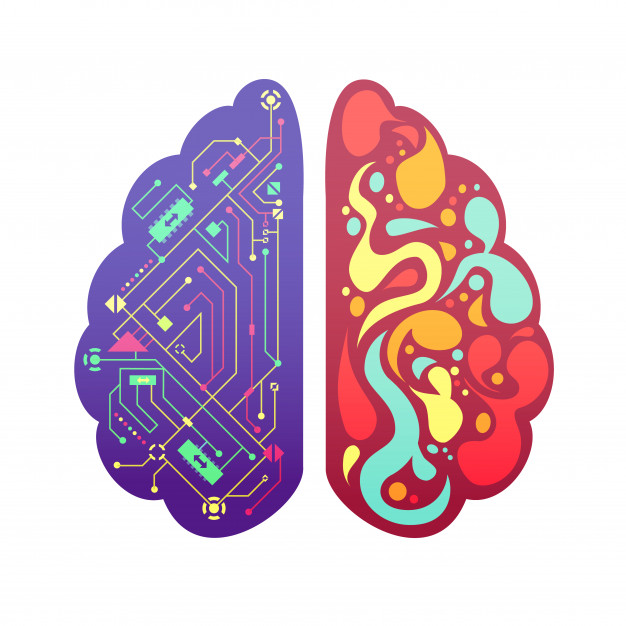
Emotional Intelligence As a Skill
For a long time, an individual’s IQ was considered the primary determinant in defining people’s success in life. It has been a common notion that people with high IQ are more likely to fare well in their endeavors. However, a handful of studies have emerged over the years that provide us with evidence that even though IQ tests can partially reveal one’s potential for success, they are not comprehensive indicators. So the question remains – which skills must a person have in their toolkit to be poised for success?
The answer to that is one’s Emotional Intelligence (EI), the ability to identify and handle oneself and others’ emotions. In his book “Emotional Intelligence: Why It Can Matter More Than IQ,” Daniel Goleman divides EI into the following four domains –
a) Self-Awareness: Knowing what we are feeling and why we are feeling it
b) Self-Management: Effectively handling distressing emotions so that they do not get in the way of what we are doing and yet attuning them to learn more
c) Social Awareness: Knowing and being aware of what others are feeling
d) Relationship Management: Using your ability to understand emotions to build and maintain successful relationships
As per research, emotional intelligence helps you build stronger relationships, succeed at school and work, and achieve your career and personal goals. It can also help you connect with your feelings, turn intentions into action, and make informed decisions about what matters most to you. Unlike IQ, EQ can be developed and honed at any point in an individual’s life.
WHY DO WE NEED EI IN THE WORKPLACE?
Research has found that people with good leadership potential often seem to be more emotionally intelligent, indicating that a high EQ is a significant trait for company leaders and executives. And EQ is also thought to play a role in how workers manage stress and conflict. Many studies have also found out that EI positively correlates with stress and conflict management, and job satisfaction. Following are the traits with
a) People with High EI
• Better decision making and problem-solving abilities
• Good at Conflict Resolution
• Empathize with people and hence have better relationships
• Listen, understand and take constructive criticism from other people
• Focus on Learning rather than Blame game
b) People with Low EI
• Have a very assertive or aggressive way of Communication
• Do not have good working relationships
• Lack Ownership
• Not a Team Player
• Very Critical of other people
REVOLUTIONALIZING THE WORKPLACE WITH EI
“Your IQ might get you Hired but it is your EQ that gets you Fired.”
As the concept and importance of Emotional Intelligence gained popularity, more and more companies started to include it as a parameter to judge while hiring and created EI training and coaching programs.
However, not all companies have seen a lot of success through these EQ training and there are a few reasons for that. Firstly, there is a big difference in simply learning about EQ and applying that in your life. Secondly, developing EI might require changing inherent habits developed over a period of time, and changing that would require a great deal of resilience and guidance. Not many people are willing to do that. The third reason is the inadequacy of these EQ training. The first two might not be very easy to change. Still, organizations can improve the third factor as meta-data analyses have proved that a well-designed program can achieve up to 25% of improvement in the EQ of an employee.
There are a few pointers an organization should keep in mind while designing an effective EQ enhancement program.
1. Pre-Assessment: Before designing any such program, it is essential to assess the employees’ current areas of improvement and which ones out of those are coachable in nature. Research suggests that EQ’s most coachable element is interpersonal skills, resulting in 50% short-term improvement, while another area can be stress management that reported about 35% improvement amongst employees.
2. Adaptation of Correct Techniques: After the employee assessment, it is essential to recognize the techniques that would prove effective for a particular group of employees. As each individual is different in nature and might respond differently to a similar training program, it is essential to identify your employees’ needs and responsiveness. One of the popular EI-building techniques is the one-on-one coaching of each employee. It helps the organization in customizing the method to each employee rather than proving to be counter-productive.
3.Evaluation of the Program: It is essential to evaluate the program through feedback or assessment tests, it would provide an overall view to the leadership team about the effectiveness of the program and an opportunity to reflect on the pain points. It will help the organization foster an environment of continuous improvement.
Apart from that, an organization can also organize workshops on the importance of Emotional Intelligence as EI is beneficial in just the workplace and improves our social well-being outside of work. It helps in improving physical and mental health, social relationships, and internal levels of happiness. It would help motivate the employees to work on their emotional component and take the first step for success.


Leave a Reply